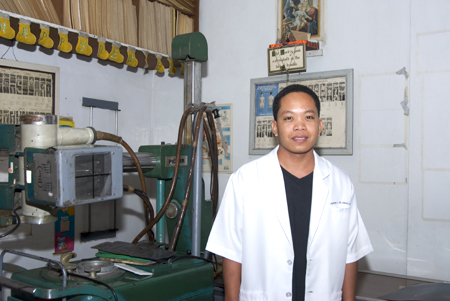By By Peggy McInerny, Director of Communications, UCLA
A group of Bruins minoring in the global health met during the APRU Global Health Student Case Competition. They are now planning careers in the field. The APRU Global Health Student Case Competition gives students an opportunity to practice critical-thinking and problem-solving skills to help solve global health challenges. The competition has brought together young and creative teams of university students to tackle many pressing global health problems with out-of-the-box ideas in helping to facilitate real changes in society.
Originally published by UCLA International Institute.
UCLA International Institute, April 9, 2020 — UCLA students today have an enviable capacity to use multiple communication methods simultaneously when collaborating on a project. It is a skill that will serve them well in the coming months, as all UCLA courses continue remotely due to the novel coronavirus pandemic.The “Gamechangers Team,” a group of global health minors who designed a social media–based health intervention and produced a video about it, have a unique view on the value of communications technology in global health. Over the course of roughly six weeks in spring 2019, six undergraduates (two of whom have since graduated) met once a week in person, exchanged ideas regularly via a smart phone chat room and shared research on project components via Google Docs.The students came together to participate in the annual Global Health Case Competition of the APRU (Association of Pacific Rim Universities), whose 2019 challenge was: “Social Networking Intervention to Promote Physical Activity among Young People in Urban Environments.”
The team was comprised of Julia Houshmand (UCLA 2020, molecular, cell, and developmental biology), Franklin Leung (UCLA 2019, microbiology, immunology & molecular genetics), Vera Ong (UCLA 2020, psychobiology), Rene Rosas (UCLA 2019, international development studies), Wendy Tang (UCLA 2021, economics) and Sahej Verma (UCLA 2020, global studies).
“I remember that [student counselors] Katie Osterkamp and Magda Yamamoto said, ‘You will be competing with medical students and Ph.D. students.’ — And I thought, ‘Great!’” said Julia Houshmand ironically.
“I remember watching some of the past videos — we were very intimidated,” said Vera Ong. “But we just gave it our best shot.”
That best shot won the Gamechangers team a place among the three finalists — the first time a UCLA team had placed in this APRU competition. (Bruins have won and placed in several APRU health poster competitions in the past).
Building on one another’s ideas and skills
The team eventually designed a campus-based intervention that would use competitions between individuals, colleges and professional schools of UCLA (and with other universities in Los Angeles) to build community, increase physical activity and encourage healthier eating. One key idea was to showcase star UCLA athletes interested in pursuing careers in fitness by livestreaming their workouts.
Although the International Institute was set to cover the students’ travel costs to attend the 13th APRU Global Health Conference last November, the conference was eventually cancelled due to demonstrations in Hong Kong. In the end, the UCLA team came in third.
Surprisingly, the students were remarkably upbeat about the outcome, stressing they had learned so much from the collaborative process.
“We went into this not to win the competition, but because we wanted to,” said Houshmand. “It sounded like something that was fun and interesting.”
“Stressful, but fun!” added Ong, noting that the team developed their case on a compressed timeline that ran into spring quarter finals.
“It was interesting how we all came up with the idea. It wasn’t just one person. Honestly, it was all of us sitting on Kerckhoff Patio and using the Socratic Method, asking: ‘What about this?’ ‘No, no, no, no.’ ‘What about this?’” said Ong.
As they progressed, the students divided up research and tasks such as budgeting the hypothetical funding. Franklin Leung, a runner, suggested that the intervention use a Strava application to measure physical activity. He also ended up editing the final case video.
“We wanted to create an intervention where people would actually have discussions about exercising together, eating healthier foods and so on,” explained Verma. “We set it up in a competition environment so that if, for example, I and Julia were roommates, we could compete with one another to see how we are doing. The goal was to use those friendly elements to live healthier lives.”
A shared interest in global health policy
The team members are deeply interested in the social determinants of health, equitable access to health care and health policy. Whether pre-med students, future economists or future health activists, their educations and career goals were a great fit with the video project.
Houshmand, for example, is a pre-med senior whose interest in global health was sparked by significant travel and the experience of living between France and the United States for most of her life. “The two countries have very different medical systems,” she remarked.
“My classmates in both countries came from a lot of different backgrounds, including refugees and people who were undocumented, and on the other hand, people from the highest levels of society,” she continued. “So I saw a lot of these differences, not just at the level of health, but at the level of access to health care.”
“Since I became interested in medicine, I’ve always seen it in a global framework,” explained Houshmand. “When I started taking classes in my global health minor, I realized that I love thinking of solutions and interventions for a health issue not just from a biological standpoint, but also taking into account the historical context, the cultural context, the political climate, etc.”
Ong also has significant experience in two countries, having been born in the Philippines before moving to Silicon Valley at a young age. She subsequently traveled frequently to see family in the Philippines. “What really got me into global health was growing up watching my uncle, who is a general surgeon there, serve his community,” she remarked.
“Similar to Julia [Houshmand],” she adds, “I have experience of different health care systems and have seen that same lack of access to care,” she adds. Both her interest in global health and her volunteer work in the UCLA chapter of Global Medical Training (2018–2020) deepened her intellectual engagement with health policy. For example, she joined the Health Equity Network of the Americas, where she helped organized international conferences that address topics such as universal health, gender inequality in health access and immigrant health.

Doctor in provincial hospital in Bulacan, Philippines. (Photo: ILO Asia-Pacific via Flickr). CC BY-NC-ND 2.0.
Ong, who plans to become a doctor, eventually came to evaluate potential medical schools partly on the basis of whether they incorporated courses on global and public health in their curricula. “That is a big factor for me in choosing a medical school and in what I want to do in the future,” she said. Houshmand, who is also going to medical school, shook her head in agreement.
Verma approaches health policy from a social development perspective, but with insider knowledge of health care — he comes from a family of doctors. An internship for a pharmaceutical lobbying group in Geneva, plus subsequent biotech work experience, helped him define a health policy career direction. Specifically, he seeks to combine health policy with new therapeutic and diagnostic technologies to achieve better health outcomes. To do so successfully, however, requires effective communication.
“I’ve had the opportunity to work with a few health economists in the Fielding School of Public Health,” he said, “and I’ve seen how they work to communicate the value of therapeutics and life sciences products to different policy makers to help them devise solutions that will both improve people’s lives and health outcomes.”
COVID-19 and its impacts
The COVID-19 pandemic has, if anything, increased the interest of the Gamechangers team in global health policy. The race to develop a vaccine to prevent COVID-19 infections, for example, directly bears on Verma’s senior thesis. The global studies senior, now an undergraduate research fellow, is researching the role of Indian pharmaceutical manufacturers in developing vaccines against diseases of poverty that are prevalent in low- and middle-income countries.
Verma may, in fact, temporarily delay plans to pursue a Ph.D. in health policy and economics so that he can work for the Indian ministry of health as it develops the regulatory infrastructure to speed the development of safe, efficacious and affordable pharmaceuticals.
The pandemic is a wake-up call for the United States, said Verma. “Whether it is the inequitable distribution of materials — think therapeutic tools (vaccines), sanitary equipment (masks), life-saving infrastructure (protocols for medical staff in hospitals) or social rigidities (young people not following social distancing norms, while older folks are scared to shop for essential groceries and medicines) — America needs to rethink where its priorities lie as a society,” he continued.

An image of the global pandemic in the shape of a COVID-19 molecule.
(Image by Miroslava Chrienova courtesy of Pixabay.)
“Post–COVID-19 will be a time not only to reconstruct infrastructure, but also to reconcile a communal attitude with productivity arguments,” he remarked. The UCLA student believes that the pandemic will lead many young people to study health policy in order “to challenge existing rationales about mechanisms of healthcare in the USA.”
Ong has been struck by how much the pandemic has highlighted pre-existing flaws in public and global health policy. “It exposed just how much our current systems were unprepared for a pandemic such as this, and how much we need to improve as global and local communities,” she commented.
“COVID-19 definitely shows the importance of global communication, teamwork and transparency, as well as the importance of forming pre-planned protocols to minimize potential consequences,” she said.
Ong, who is currently working with the UCLA Learning Assistants Program to help professors navigate Zoom and better engage their students remotely, is seeing firsthand how time-efficient and useful such interactions can be.
“With an increased focus on telemedicine, I can see similar benefits within the medical field,” she said. “By decreasing overall waiting time and providing more scheduling flexibility, telehealth could encourage patients to be more active in consulting physicians overall, increasing doctor-patient interaction and treating illnesses early.”
Verma also believes that one outcome of the pandemic will be a revival of doctor-patient interaction. Yet the barriers to effective telemedicine remain significant, with equitable access to communications technologies at the top of the list.
“The COVID-19 pandemic is highlighting the gaps in communications infrastructure, with restricted broadband speeds amid increased usage,” he pointed out. How regulators and the government support the adoption of these technologies will be the true litmus test of their efficacy in serving community health needs, insisted Verma.
Ong points to additional barriers that must be addressed before telehealth can become a reality, including lack of technological literacy among physicians and patients, hacking dangers and lack of a robust protocol.
As for the immediate future, Ong — like Houshmand — heads off to medical school in the fall. Verma will begin working as a research assistant at University of Michigan’s Institute for Healthcare Policy and Innovation.
Expect these Bruins to make their mark on global health policy in the coming decades.
Published: Thursday, April 9, 2020
